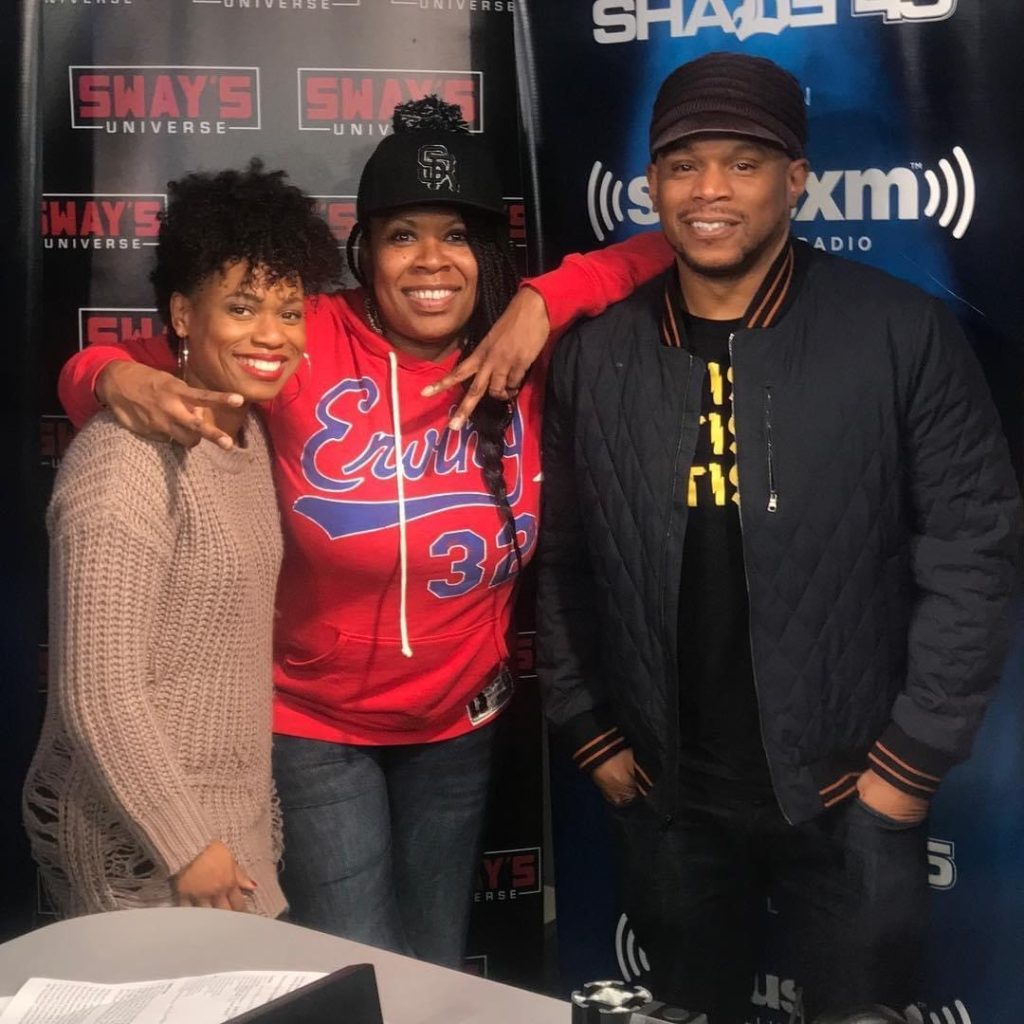
By Shannon Andino
As a little girl growing up in the ‘90s, I vividly remember listening to music sitting on my stoop in South Jamaica, Queens. Back then, we didn’t have social media or Apple Music, so if I wanted to hear my favorite jam multiple times, I had to record it on the radio or purchase a cassette tape. Any problem could be solved when I listened to music, it gave me a sense of peace and perhaps more accurately, refuge. As I grew into adulthood, I realized music is a critical component of Black culture. In times of crisis and during difficult moments, music is what brings Black people together.
My father often told me stories about how my grandmother hung out with James Brown. He lived a few blocks down from my childhood church, and I can still hear the famous “Say it Loud: I’m Black and I’m Proud” that rang out the third Sunday of every month. Brown even visited our church once (he did not perform) and he sung a few Gospels songs with our choir. As I stop to reflect on Juneteenth and the rich history of Black culture, I’ve come to realize how critical music was in the shaping of our history and roots and continues to be.
Enslaved Black people used melodies in place of written communication to discuss life, death and emotions related to slavery. Music communicated life at a time when Black people felt unseen, unheard and less than. They sang songs like “Cornfield Holler” and “I Be So Glad, When the Sun Goes Down” to keep upbeat and hopeful that a new day would come.
On June 19, 1865, troops arrived in Galveston, Texas, to share the news that Black people who were still enslaved were to be let free. Nearly 160 years later, this is symbolic date is recognized as a federal holiday in the United States to commemorate the emancipation of enslaved Black Americans — a day to celebrate Black joy, excellence, resilience and culture. Music was freedom for our ancestors, and it is still freedom today. Freedom for Black people is intertwined with joy, pain, sorrow, excitement, connection and comfort. For me, music echoes the struggles of my ancestors, but also the incredible amount of hope and faith they had to push forward.
Today, I continue to appreciate how deeply rooted Black culture is in music, and how music has transformed over time. From somber melodies like “A Change Is Gonna Come” by Sam Cooke or the famous Black National Anthem “Lift Every Voice and Sing” to upbeat tunes like “Already” by Beyonce or “Don’t Touch My Hair” by Solange. I appreciate and recognize the variety of genres of Black music, Rhythm & Blues (R&B), Hip-Hop, Gospel, Jazz, Disco, Folk, Reggae, Dancehall, House, Rock and Roll and Rap, to name a few, and the culture relevance each genre has had on Black culture.
On May 31, 2023, A Proclamation on Black Music Month was signed and introduced to pay homage to Black Musical legends of American history in June. It is no surprise that this proclamation was signed for execution in June, the same month freedom was granted to all Black American people. My mother used to mimic an adage from Dr. Martin Luther King Jr., “No one is free until we are all free,” and that saying continues to remain true.
While Black people still work toward equity and equality, Juneteenth is a celebration (and reminder) that Black people’s resilience, fortitude and faith have perpetuated a culture of creativity and talent. Their contribution to music culture is undeniably excellent. And as we continue to ascend forward in greatness, we must not look back — we must continue to glide forward, full speed ahead in positivity and gracefulness. Ase ase, Happy Juneteenth!
Shannon Andino leads our employee relations function and is responsible for addressing the needs and concerns of the agency’s employees.
She’s a registered yoga teacher and spends her free time volunteering with her sorority and advocating for issues that impact BIPOC women in our community.